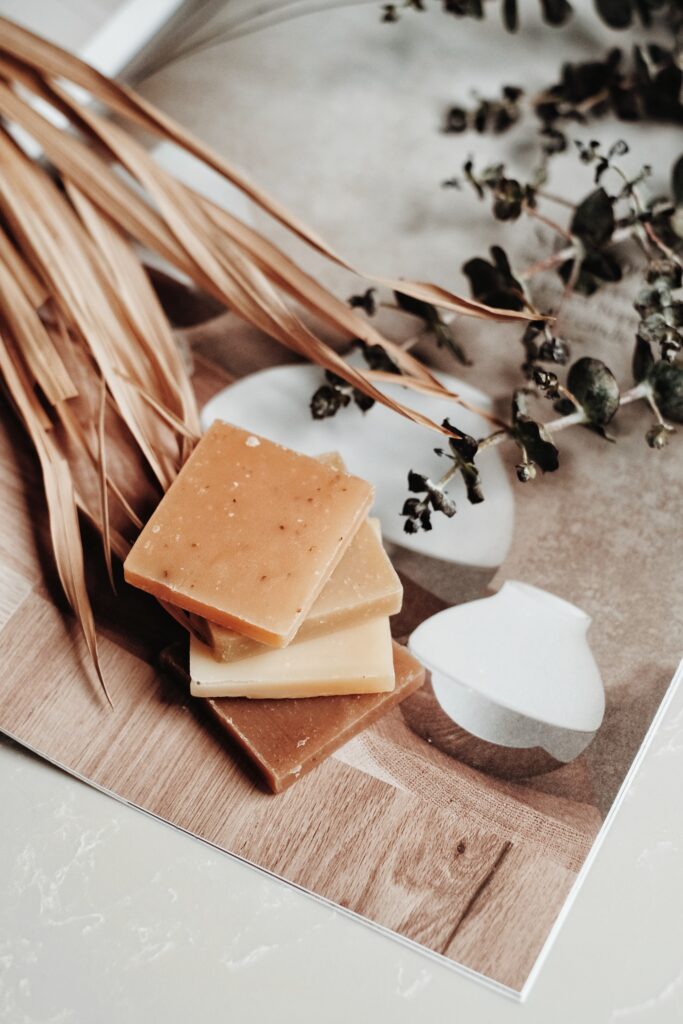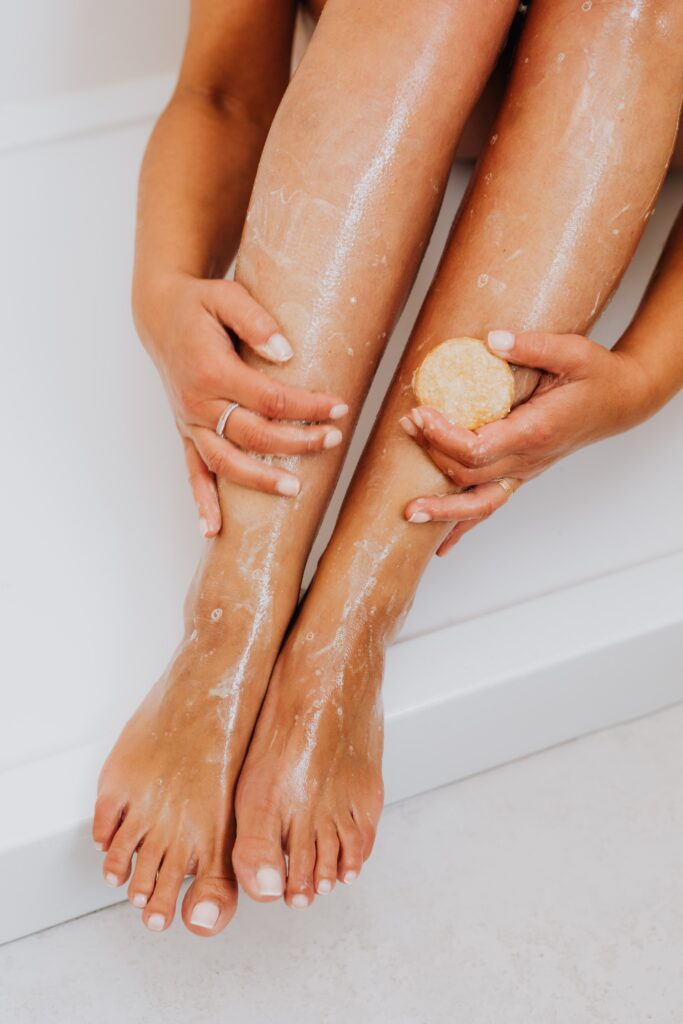Understanding Organic, Natural And Synthetic Soaps

Soap is an essential personal hygiene product used by people all over the world. However, there are different types of soaps available in the market, which can make it challenging to choose the right one. One of the primary considerations when selecting soap is whether it is organic, natural or synthetic. In this blog, we will explore the difference between these three types of soaps and help you make an informed decision.
Organic Soap:
Organic soap is made from ingredients that are grown and processed without the use of synthetic fertilizers, pesticides or genetically modified organisms (GMOs). It is usually made from natural plant-based ingredients like olive oil, coconut oil, Shea butter, and essential oils. Organic soap is free from harmful chemicals like parabens, sulfates, and phthalates, making it safe for your skin and the environment.
Natural Soap:
Natural soap is also made from natural ingredients like organic soap, but it may contain some synthetic substances like fragrances or colors. While natural soap is not always certified organic, it is still free from harsh chemicals and synthetic ingredients found in most conventional soaps. Natural soaps are often scented with essential oils, and their color comes from natural sources like herbs and spices.
Synthetic Soap:
Synthetic soap, also known as conventional soap, is made from synthetic ingredients like detergents, fragrances, and artificial colors. These soaps are often made from petrochemicals and are known to contain harsh chemicals that can irritate the skin, causing dryness and other skin problems. Synthetic soaps are also harmful to the environment as they contain toxins that can pollute water bodies.
Key Differences:
The primary difference between organic, natural, and synthetic soaps is the ingredients used to make them. Organic and natural soaps use natural ingredients, while synthetic soaps are made from synthetic chemicals. Another critical difference is that organic and natural soaps are gentle on the skin, while synthetic soaps can be harsh and cause skin irritation.
When selecting a soap, it’s important to consider your skin type, sensitivities, and the environment. If you have sensitive skin, you may want to opt for organic or natural soaps, as they are less likely to cause irritation. Additionally, if you are concerned about the environment, you may want to choose organic or natural soaps, as they are made from sustainable and environmentally friendly ingredients.
Awareness:
It’s worth noting that not all soaps marketed as natural or organic are created equal. Some manufacturers may use the terms “natural” or “organic” as a marketing gimmick, even though their products may contain harmful ingredients. Therefore, it’s important to read the label carefully and do some research before purchasing any soap.
Another consideration is that organic and natural soaps may have a shorter shelf life than synthetic soaps, as they do not contain preservatives. This means that they may need to be replaced more frequently. However, this is a small price to pay for a soap that is better for your skin and the environment.
 If you’re looking to make the switch to organic or natural soap, there are plenty of options available. Many natural and organic soap brands use high-quality ingredients like olive oil, coconut oil, and Shea butter to create gentle, nourishing soaps that are perfect for sensitive skin. Some brands also use organic and sustainably sourced ingredients, which helps to reduce your carbon footprint and support ethical farming practices.
If you’re looking to make the switch to organic or natural soap, there are plenty of options available. Many natural and organic soap brands use high-quality ingredients like olive oil, coconut oil, and Shea butter to create gentle, nourishing soaps that are perfect for sensitive skin. Some brands also use organic and sustainably sourced ingredients, which helps to reduce your carbon footprint and support ethical farming practices.
One of the best things about organic and natural soaps is that they come in a wide range of scents and flavors. You can find everything from lavender and peppermint to lemongrass and patchouli. These natural fragrances not only smell great, but they also have therapeutic benefits. For example, lavender is known for its calming properties, while peppermint is invigorating and refreshing.
In addition to being good for your skin and the environment, organic and natural soaps can also be a great way to support small businesses and independent makers. Many of these companies are passionate about creating high-quality, eco-friendly products, and they often have a strong commitment to ethical and sustainable practices. By purchasing from these brands, you can feel good about supporting a cause that you believe in.
When making the switch to organic or natural soap, it’s important to keep in mind that your skin may need some time to adjust. This is because conventional soaps often contain harsh chemicals that can strip your skin of its natural oils, leaving it dry and irritated. Organic and natural soaps, on the other hand, are designed to be gentle on the skin, but it may take some time for your skin to adapt to the new formula.
To help your skin adjust, it’s important to stay hydrated and moisturized. Drinking plenty of water can help to keep your skin hydrated from the inside out, while applying a moisturizer after washing can help to lock in moisture and prevent dryness. You may also want to try a gentle exfoliating scrub to help remove any buildup of dead skin cells.
Another thing to keep in mind when switching to organic or natural soap is that these products may not produce as much lather as synthetic soaps. This is because synthetic soaps often contain foaming agents like sodium lauryl sulfate, which can create a lot of bubbles. However, just because an organic or natural soap doesn’t produce a lot of lather doesn’t mean that it isn’t effective. These soaps can still clean your skin and leave it feeling soft and refreshed.
Making the switch to organic or natural soap can be a great way to support your skin and the environment. These products are made from high-quality, sustainable ingredients and often come in a range of therapeutic scents and flavors. While it may take some time for your skin to adjust to the new formula, the benefits are well worth it. By staying hydrated, moisturized, and using a gentle exfoliating scrub, you can help your skin adapt to the new soap and keep it looking and feeling healthy.

